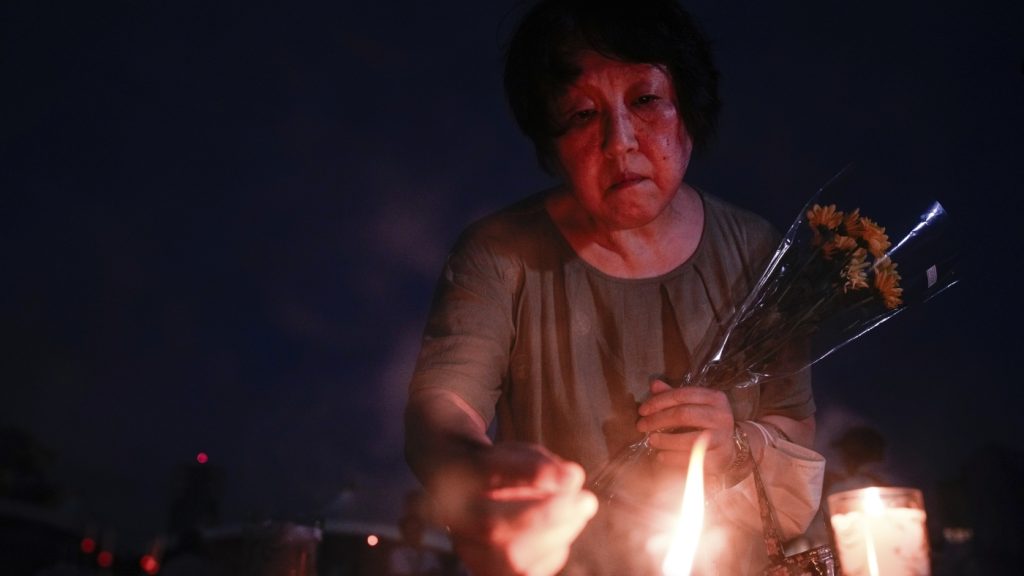Hiroshima Commemorates 80th Anniversary of Atomic Bombing
HIROSHIMA, Japan — On Wednesday, Hiroshima observed the 80th anniversary of the U.S. atomic bombing, with many elderly survivors voicing their discontent over the increasing global leaders’ endorsement of nuclear weaponry as a safety measure.
As the number of survivors dwindles, with an average age surpassing 86, this anniversary is seen as a significant event for many. “In 10 or 20 years, no one will be left to convey this tragic experience,” stated 94-year-old survivor Minoru Suzuto after paying his respects at the cenotaph. “That’s why I wish to share my story as much as possible.”
The Impact of the Bombing
The Hiroshima bombing on August 6, 1945, devastated the city, claiming around 140,000 lives. A subsequent bomb dropped on Nagasaki three days later resulted in 70,000 casualties. Japan ultimately surrendered on August 15, marking the end of World War II and nearly 50 years of its aggression in Asia.
Warnings from Local Leaders
Hiroshima Mayor Kazumi Matsui cautioned against the rising acceptance of military expansion and the potential use of nuclear arms for national security amidst the conflict in Ukraine and tensions in the Middle East, where the U.S. and Russia hold the majority of the world’s nuclear arsenal. “These trends overlook the vital lessons from historical tragedies,” he asserted. Matsui urged younger generations to understand that such “misguided policies” could lead to dire consequences.
Gathering for Remembrance
Approximately 55,000 individuals, including representatives from a record 120 countries, attended the commemoration. A moment of silence was observed as a peace bell tolled at 8:15 a.m., marking the exact moment the bomb was unleashed on the city.
Survivors Seek Nuclear Disarmament
The anniversary arrives at a time when more state leaders worldwide advocate for retaining nuclear weapons for deterrence, including Japan. Survivors expressed their disappointment over President Donald Trump’s recent justification of military actions, which they found deeply misguided. Kosei Mito, a 79-year-old survivor exposed to radiation in utero, remarked, “As long as the assailant justifies nuclear weapons, true disarmament seems unattainable.”
Government’s Stance on Nuclear Weapons
Japan’s government has declined survivors’ appeals to sign the Treaty on the Prohibition of Nuclear Weapons, maintaining that it is protected under the U.S. nuclear umbrella. In a speech, Mayor Matsui advocated for Japan to endorse the nuclear weapons ban treaty, a request echoed by numerous survivors. However, Prime Minister Shigeru Ishiba reiterated support for nuclear deterrence, citing Japan’s non-nuclear principles while surrounded by nuclear-armed neighbors.



